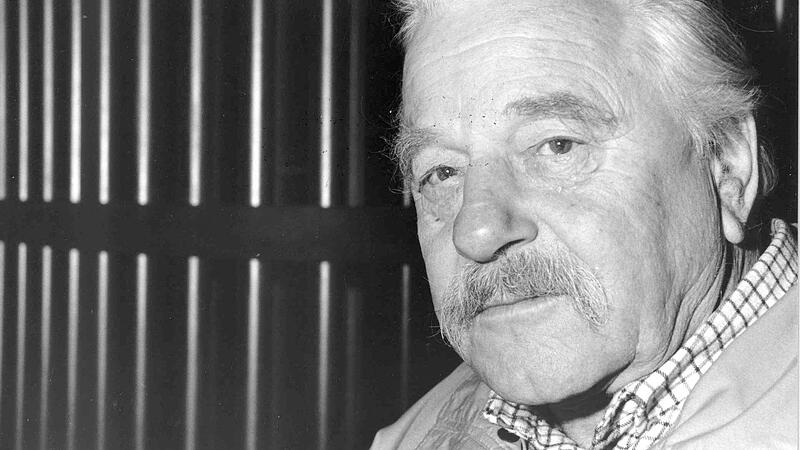The life and work of the journalist, politician and writer Franz Kain (1922-1997) reflects the history of the 20th century in a striking way. In his extensive autobiographical novel “Am Taubenmarkt” (in the new edition 2003 “Auf dem Taubenmarkt”) he told an impressive story of life in an era of political extremes.
Franz Kain was born in Posern near Bad Goisern. His father was a bricklayer and a functionary of the social democratic workers’ education association. Even as a teenager, Kain was involved in the communist youth organization, and when he was 14 he was sentenced to three weeks in prison for illegal activities. Since it was difficult for him to get an apprenticeship afterwards, he worked as a lumberjack. After Austria was “annexed” to the Third Reich, Franz Kain took part in building the communist resistance movement and was arrested again. In order to escape the concentration camp, he reported to the “Probation Unit” Penal Division 999 and in 1943 was taken prisoner by the Americans.
Socially critical observer
After his return to Upper Austria in 1946 he became a member of the editorial board of the communist daily newspaper “Neue Zeit”, which he headed for 25 years as editor-in-chief. He belonged to the central committee of the KPÖ and was a member of the Linz municipal council.
The boundaries between the journalist, the politician and the writer Franz Kain are fluid. He drew his literary themes from a critical perception of social reality. Political “partisanship” was part of the literary program for communist authors. With Cain, however, taking sides for the disadvantaged, the weak and the persecuted never led to ideological narrow-mindedness. Most of Franz Kain’s stories draw their themes from the history of Upper Austria (including “Die Avalanche”, “The way to Ödensee”, “The end of eternal rest”). The literary scholar Klaus Amann appreciates Franz Cain’s literary work with the following words: “Cain only writes about what he knows, what he has experienced, learned or acquired through careful study and research. He writes what he takes part in. He is on the side of the “little people” (??) and gives a voice to those who cannot be found in any chronicle or history book. “
- 13. 1., reading in the Stifterhaus Linz: , The members of GAV Upper Austria – Kurt Mitterndorfer, Rudolf Habringer, Franz Fend, Judith Gruber-Rizy, Helmut Rizy – will remember their colleague Franz Kain and his work on January 13th with a readership, starting at 7.30 p.m., information: www. stifterhaus.at
Source: Nachrichten




